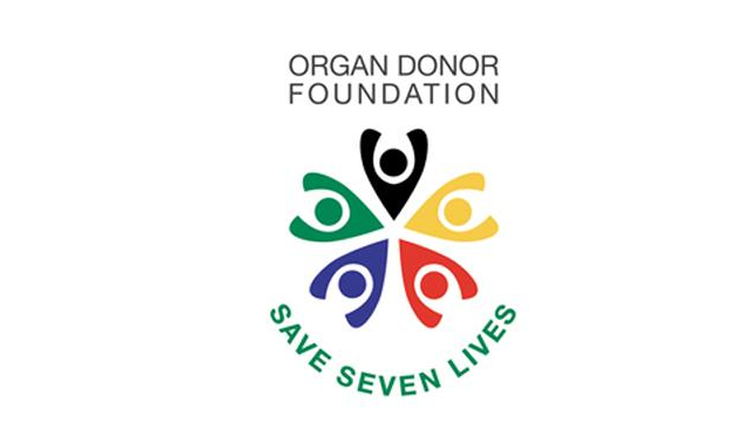NATIONAL NEWS - As a registered organ donor, you may feel secure in the knowledge that, upon your death, your organs could save and prolong many lives. But there are no guarantees.
In a recent case, a woman registered as an organ donor was declared brain dead in a private, town-based hospital in South Africa.
Despite the hospital’s state-of-the-art surgical facilities, her daughters were informed that organ procurement was only possible in larger metropolitan areas.
Additionally, the daughters claim that life support was terminated before they could arrive at the hospital to say their final goodbyes.
Group Editors requested comment from the hospital, and will publish it if and when received, but the Organ Donor Foundation has requested that Group Editors not disclose the identity of the doctor or hospital involved, as doing so would be counterproductive and hinder the foundation’s mission.
Instead, the foundation is working with the hospital to facilitate future organ donations.
Therefore, we are omitting names and focusing on how families can ensure their loved ones’ organ donation wishes are honoured.
Fortunately, in this case, the deceased woman’s legacy helped many people with medical conditions.
Tissues aid 60+ people
After their mother's body was released, the daughters contacted Vitanova Tissue Bank, which promptly recovered tissues, including corneas, bones, heart valves and skin, from the body at the funeral parlour, ultimately aiding more than 60 individuals.
Unlike organ donation, tissue recovery can occur after cardiac death, whether the donor passes away in or out of a hospital.
Organ donation is possible only if the potential donor:
- is in a hospital;
- has been certified as brain-stem dead; and
- can be sustained through mechanical support and medication to ensure organs remain suitable for transplantation.
Organ donation hurdles
Transplant coordinators face numerous challenges in procuring suitable donors for thousands of patients awaiting transplants.
A Cape Town-based private hospital transplant coordinator highlights obstacles such as cultural and religious beliefs, misconceptions about procedures, high turnover of hospital staff and general ignorance about organ donation.
“Many doctors lack transplant experience and are unfamiliar with organ donation processes. Some also impose their personal beliefs on patients and families,” she explains.
When a loved one is declared brain dead, families are often in a deep emotional state and may be reluctant to discuss organ donation - particularly if the deceased is a child or young adult taken in the prime of life.
Coordinators train nursing staff to approach the topic sensitively, informing families that organ donation is an option before life support is terminated.
These challenges result in waiting lists numbering in the thousands.
“Currently, nearly 5 000 patients are waiting for organs. The criteria for organ donation are stringent with many legal requirements and there is a severe shortage of donors. A patient with O+ blood type needing a kidney, may wait up to 12 years,” the coordinator says.
Dialysis, required three times a week, is costly, with patients often spending thousands monthly on travel alone. Long-term dialysis is also far more expensive for medical aids than a transplant.
On average, about 15% of heart transplant candidates will die without receiving a heart. "Criteria include the right blood type and a delicate balance of health: not too weak to survive the transplant, but ill enough to urgently need it. Our youngest patient, an 8-year-old, has been waiting for a heart for five years,” the coordinator says.
Organs are procured at the facility where the donor is declared brain dead and then transported to hospitals equipped for transplants.
 Registering as an organ donor is very easy and cost nothing - register at www.odf.org.za.
Registering as an organ donor is very easy and cost nothing - register at www.odf.org.za.
In the Western Cape, transplants are performed at Christiaan Barnard Memorial Hospital, UCT Private Academic Hospital, Tygerberg Hospital, Red Cross Children’s Hospital and Groote Schuur Hospital in Cape Town. Private and state transplant coordinators collaborate closely to ensure organs are allocated to the most suitable candidates.
How it should work
Families must clearly communicate their loved one’s organ donation wishes to the medical staff.
“The hospital must contact the Netcare Transplant Coordinator unit at Christiaan Barnard Hospital, which will guide staff on next steps,” the coordinator explains.
Two doctors must confirm brain death, before the patient’s general condition is assessed to determine medical suitability for donation. Then, medical practitioners discuss end-of-life options, including organ donation, with the family.
If consent is granted, blood tests are conducted on the deceased. If results are satisfactory, transplant coordinators allocate organs to suitable recipients nationwide.
Organs are transported on ice to recipient hospitals. Hearts, for instance, are triple-bagged in a liquid and kept below 8°C. Time is of the essence as the window for livers is a maximum of five hours, lungs up to six hours and hearts have just four hours. Kidneys have a wider window of 24 hours.
Once the family agrees to organ donation, no further hospital costs are incurred for the deceased.
In the Western Cape, eight transplant coordinators serve all hospitals - private and state. As they cannot be present at every facility, they provide each ICU with a red file containing step-by-step instructions and contact details.
Coordinators aim to visit hospital emergency departments and intensive care units monthly and regularly email updated on-call rosters, hoping hospitals will contact them when a suitable donor is identified.
Become a donor
Despite these efforts, challenges persist.
“Where are the donors?” the coordinator asks. “Have young people left the country? Are too few younger individuals covered by medical aid?
"We urgently need organs from donors under 50. Some individuals who are declared dead still hold the power to give life to those desperate to live.”
Registering as an organ donor is very easy and cost nothing - click here to register and to confirm your decision to be a proud organ donor.
If a loved one is declared brain dead and is on a ventilator, contact the Organ Donor Foundation toll-free at 0800 22 66 11 to save up to seven lives.
The foundation will put you or your family in touch with the relevant transplant centre or tissue bank.
To donate the tissue, you can contact Vitanova Tissue Bank at 087 068 8000.
‘We bring you the latest Garden Route, Hessequa, Karoo news’

















